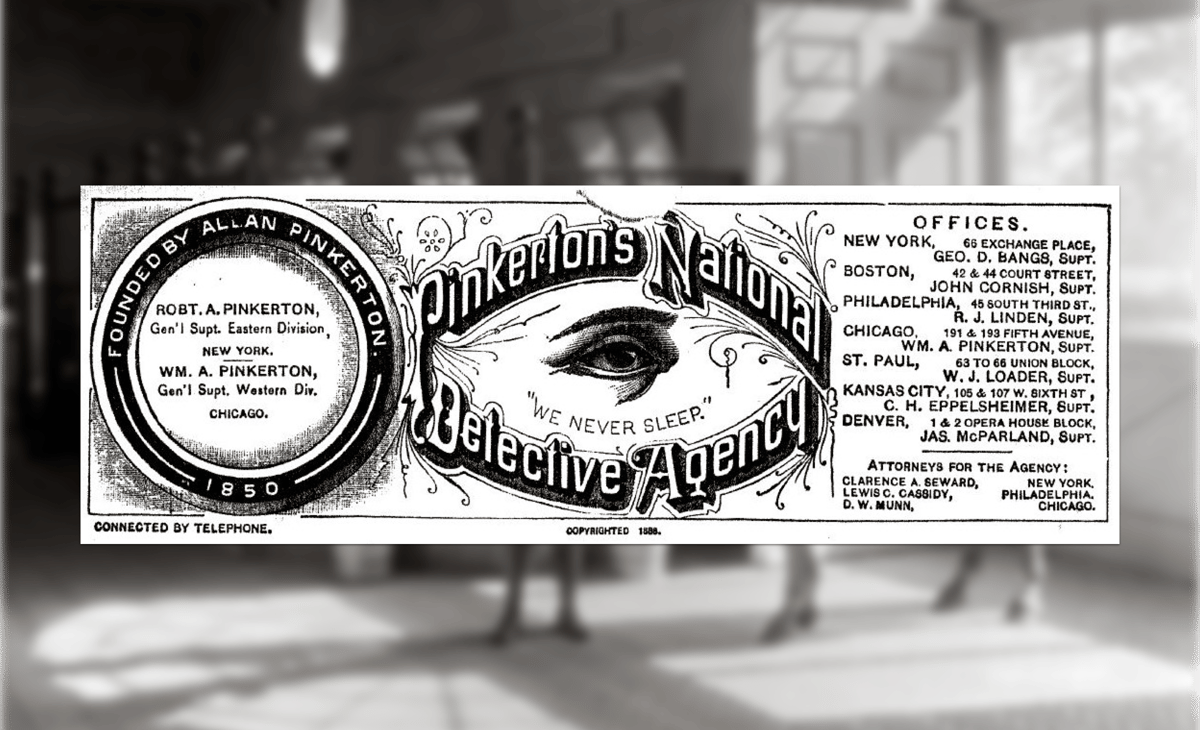Cornwall Borough resident Bruce Chadbourne moved to Cornwall Manor a few years ago after his retirement, drawn by the history of the mine and the Cornwall Iron Furnace. He has taken to writing a few historical articles, which he’s kindly shared with LebTown for our readers to enjoy in a semi-regular series titled, “Who knew?” We hope you enjoy.
Day 14 – Monday
Waking early, Thomas heard some activity in the stable and went down to find Fornwalt packing his things. Thomas arranged for the day off and prepared a team to help take Fornwalt and his gear back home to Bismarck, about a mile away. After breakfast Fornwalt made plans to hire a team and go to Lebanon. Thomas returned the Coleman team to the stable and then rode the train to Lebanon, where the two walked about town seeing the sights.
As they talked he learned more about Fornwalt’s grievance. The former stable boss, Johnson, used to make a “stake” or profit when going to New York to buy horses or wagons for Mr. Coleman. He would mark-up whatever he paid, charge the higher amount to Mr. Coleman and keep the rest as commission. Normally Johnson would share some of it with Fornwalt and Curry the harness maker. Fornwalt was used to making an extra $35 a year in such tips but has seen none of it since Morgan took the job.
Apparently Morgan had bought a Chestnut horse in New York for $350, charged $700 to Mr. Coleman and with the rest he “furnished his house in good style,” not sharing any with Fornwalt. When challenged, Morgan refused to pay him. Ironically, the reason Morgan was away presently was to purchase a horse and presumably was making a nice profit doing it.
Thomas treated Fornwalt to whiskey twice during the day, noting in his report that he took soft drinks for himself. He returned to Cornwall via train, helped bed the horses before retiring himself.
Day 15 – Tuesday
The men kept to themselves, making this a very quiet and routine day. Thomas enjoyed walking around the grounds in the evening to the sounds of organ music and the roar of the nearby iron furnaces, before retiring again to his room in the stable to write his report.


Day 16 – Wednesday
Morgan was still away and not expected to return until Friday. Thomas observed the men working harmoniously whenever an order came in for a team. He tried unsuccessfully to engage Schult in conversation. He seemed very shy to talk with anyone on any subject concerning the stable or Morgan. When his work was done he would either find a quiet place to read, or go home. The other men behaved likewise.
That evening after supper Thomas walked over to the Cornwall rail station to post a report, and spent the pleasant summer evening there before retiring to the stable.
Day 17 – Thursday
Another easy summer day, work in the stable was done by noontime and after dinner Thomas found the other men sleeping around the stable; he returned to his room to read. Benner came up to pass the time.
He spoke well of Mr. Coleman, who had given him a watch. “Schult thinks too much of himself, thinking he can do as he pleases, because he considers himself a favorite of Mrs. Coleman Senior.”
Further, said Benner, he planned to look out for himself, not being “dragged into a hole like Jake (Christ) did Puffer (Fornwalt).”
Thomas went off to the rail station again late in the afternoon, then returned for supper and a quiet evening.
Day 18 – Friday
An uneventful day. In the evening, Captain Hean found Thomas to let him know to go see Mr. Coleman. In his office, Robert Coleman told Thomas he was pleased with the work he’d done and considered the work complete. In a few days he would write the agency to withdraw him, and for the meantime remain around “in case anything turned up.”
Morgan had not yet returned from New York, and everything else was running smoothly, “in perfect harmony” in the stable.
Day 19 – Saturday
All of the work for the day was routine. Morgan returned in the morning and was pleased to learn of Fornwalt’s discharge. He had not yet spoken to Thomas, who assumed Morgan would “pump him” for details as to how things transpired during his absence.
Day 20 – Sunday
Another quiet day, with just a little of watering and care for the horses. Morgan was in bed with a back sprain for the day.

Robert Coleman sent a letter to R.J. Linden, Thomas’s supervisor, directing him to close out the job. Linden already had another job waiting for Thomas and sent him a telegram directing him to withdraw, “without exciting suspicion.”
Further, Coleman inquired of Linden, asking him to send a man who would serve as timekeeper and day boss. Thomas began wondering if Mr. Coleman had other intentions for Morgan after all.
Day 21 – Monday
Linden responded to Coleman’s letter, advising him he had in mind a man for the day boss position and asked what salary would be paid.
Thomas reported a routine day. He was sent to Lebanon in the afternoon on an errand and returned in the evening. Nothing of interest to the operation had occurred, and Morgan had still not approached Thomas for any information.
Day 22 – Tuesday
Thomas worked a normal day and late in the afternoon went to the clerk’s office to draw his salary of $6.25. Early that evening he returned to the office and returned the wages to Capt. Hean.
Later, Morgan paid Thomas a visit in his room where the two spoke for about an hour. Morgan asked how things had gone during his absence and Thomas essentially reported nothing, just “all right.” He then learned from Morgan that Schult got an earful from Mr. Coleman on Sunday night, who made it clear that if Schult caused any trouble, he would be blackballed in this county so that he would never get any work.
Morgan was pretty sure now with Fornwalt gone and Schult “straightened out” by Mr. Coleman that his own troubles were over. What puzzled him is “how the Boss found out so much about these fellows, he seems to know just what happened.”
Morgan wanted to know what Fornwalt had said about him while he was away. Thomas alluded to hearing about the “commissions” Morgan got, claiming to not understand what Fornwalt had meant. Morgan replied, “well I know when Johnson was here, he and Fornwalt and some other fellow used to have women come here in this room, and Johnson used to give him money and other things to keep Fornwalt quiet about it. Fornwalt thought it was a commission, but he was mistaken if he thought he’d have the same thing from me.”
“I never got commission from anyone! If I had, I’d sure have more money that the $50 I own. If I sometimes get a present from anyone, I’d give the man half of that, wouldn’t I? Anyway the man is gone and I expect everyone will enjoy working here now.”
Morgan promised to look out for Thomas; “if you want anything you can have it. Stick by me, and if you see anything go wrong let me know and I’ll settle it quickly.”

Day 23 – Wednesday
Thomas started his workday but then received a telegram at 10:30 a.m. directing him to return home by the first train. He went looking for Capt. Hean at the office and learned he was over at the furnaces.
They spoke there and Hean sent him to see Mr. Coleman in Lebanon before departing. Thomas caught the 1 p.m. train to Lebanon, went to the bank, only to learn that Mr. Coleman had just left for home.
Thomas returned to Cornwall one more time on the 2 o’clock train and went to the office where he received wages of $12.50. He packed up his valise at the stable, bade the men goodbye and visited Mr. Coleman in his private office to return the wages and debrief.
Mr. Coleman was very well satisfied with the results of the assignment. Thomas worried that Coleman might have acted too soon in dressing down Schult, as Morgan had told Capt. Hean that “someone was acting as spy around here since Mr. Coleman knew all the details of what had happened.” “Don’t you worry about that,” said Robert Coleman. “I’ll fix that all right.”
Thomas left for the station just in time to catch the 3:20 to Philadelphia, where he arrived around 6:50 p.m. and retired to his residence, mission accomplished, on Aug. 15.
Epilogue
Civil War hero Capt. B.F. Hean served as Coleman’s secretary and furnace manager for two more years before becoming elected as Lebanon Court Clerk. By 1895 he had embezzled money from Lebanon and turned up dead in Melbourne, Australia, a few months later. (Editor’s note: Watch for more about Capt. Hean in a future installment of ‘Who knew?’.)
Although life in the Coleman stable was a bit slow for the men, especially during summer months, Robert Coleman continued to balance a busy life. In addition to his role at his bank, farms, horses and herds, several furnaces, and the Cornwall Ore Bank, he found time with his young family and also played baseball with his colleagues as well as socialized with the Coleman cousins in Cornwall, often bowling or playing croquet.
When he had evenings free, he lost himself in his private Music Conservatory, playing the water-powered organ. He composed music and continued practicing for the times he would play for his friends. On other nights he would while away hours in his model train shop, tinkering with steam engines or his prized telegraph key, “toys” he had enjoyed since his youth. On Aug. 14 he gained approval of patent #387,623 for “a method of promoting combustion of fuel and extinguishing sparks in locomotive and other boiler furnaces.”
Railroads were becoming an ever-larger fascination for him, far beyond the Cornwall & Lebanon, and Mount Gretna rails. Though it would later lead to his downfall he was venturing into partnerships with Henry Flagler and Henry Plant, men developing Florida with railroads and hotels. Coleman had a dream home designed for himself in St. Augustine, and in the previous year he purchased a private rail car “Cornwall” from Jackson & Sharp of Wilmington, Delaware, which had been specified to exceed the opulence of Flagler’s own private car “Minerva.” In this August of 1888 Coleman had arranged to take his family on a rail trip to Niagara Falls, traveling as they had to points as distant as Florida and San Diego, California.

The author thanks his colleagues at Cornwall Iron Furnace Associates for answering his many questions and assisting with photos throughout this entire series.
Any questions about the Cornwall Caper we left unanswered? Ideas for future history stories? Let us know here.
Do you want to read more stories like this?
If you want to see LebTown continue and expand its history reporting, consider joining LebTown as a member. Your support will go directly towards stories like this and you will be helping ensure that our community has a reliable news source for years to come.
Learn more about membership and join now here.
























